Northeast Tennessee municipalities use opioid abatement funds to finance life-changing recovery facility
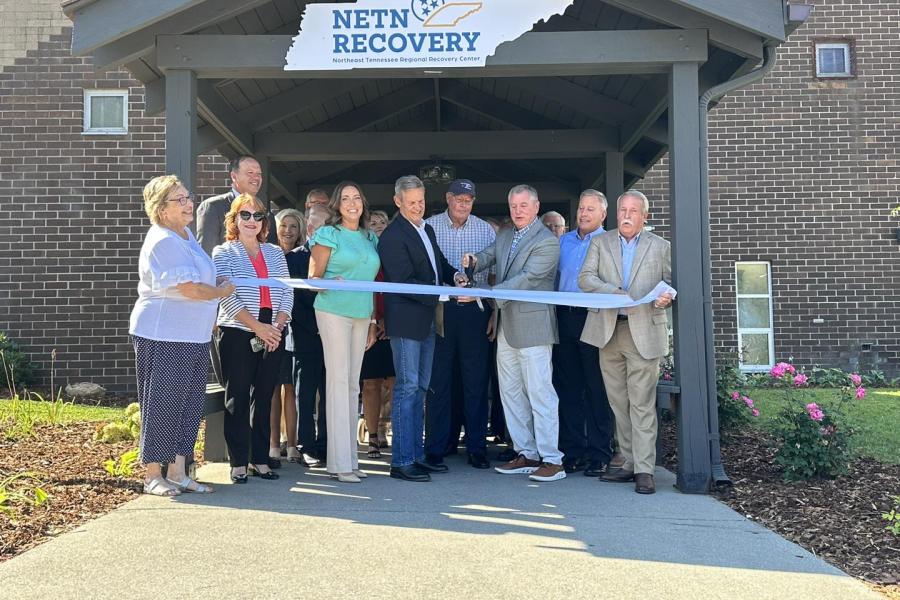
By KATE COIL
TML Assistant Communications Director
A former prison work camp is giving a new lease on life to those in recovery in Northeast Tennessee.
The Northeast Tennessee Regional Recovery Center is the result of funds from 11 counties and cities obtained through the Baby Doe lawsuit settlement and aims to work with individuals, families, and recovery courts in the region to provide rehabilitation for addicts.
The municipalities of Elizabethton, Erwin, Kingsport, and Unicoi as well as Carter, Hawkins, Johnson, Sullivan, Unicoi, and Washington counties contributed a portion or all of their opioid abatement funds from the settlement toward the new facility, which they hope will aid those in recovery throughout the region.
The project began with the opioid lawsuit known as the Baby Doe suit, which was brought by a group of Tennessee District Attorneys General on behalf of an unnamed child born in addiction and municipal and county governments in the region.
After numerous battles to settle the suit, 2nd Judicial District Attorney Barry Staubus said he wanted to see the funds put to work in a way that would battle not just the opioid crisis but addiction in the region.
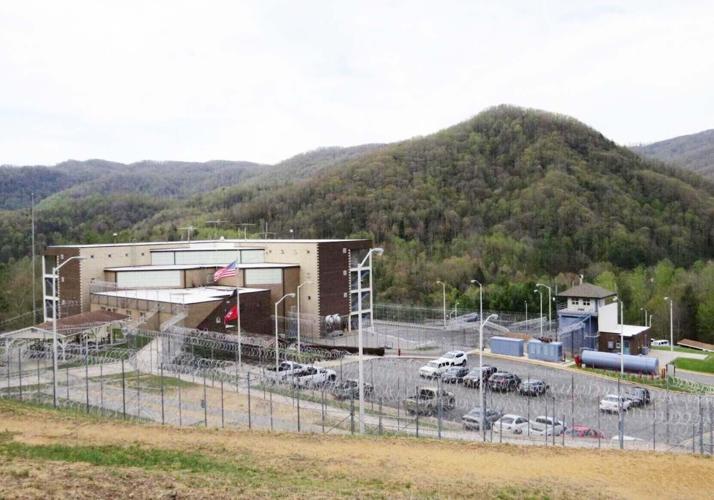
“When we obtained the settlement, my hope was we would come to some comprehensive use of the moneys to combat opioid and other drug abuse in the Northeast Tennessee region,” Staubus said. “Most of the cities and counties did so, and a result of our district judges, we have this facility.”
After Staubus approached them, First Judicial District Criminal Court Judge Stacy Street, whose district covers Carter, Johnson, Unicoi, and Washington counties, said he and his fellow judges in the region knew the idea of a recovery center could greatly benefit the region.
“For a long time, we’ve been looking for a residential facility,” Street said. “We’ve had great success with our recovery courts in the district, but we are seeing a lot of folks coming into our criminal courts over and over again because they are committing crimes because of an addiction. If we put them in jail, they just get out and are right back there.”
However, the program needed the municipalities and county governments receiving funds from the lawsuit to invest. Street and fellow First Judicial District Criminal Court Judge Lisa Rice presented before local government boards advocating for the creation of the recovery center because of their experience running the area’s drug court.
“For a long time, we’ve been looking for a residential facility,” Street said. “We’ve had great success with our recovery courts in the district, but we are seeing a lot of folks coming into our criminal courts over and over again because they are committing crimes because of an addiction. If we put them in jail, they just get out and are right back there. We went on a crusade around to the counties and municipalities involved in the lawsuit and asked them to hold their money for a while to see if we could come up with something.”
At the same time, the Tennessee Department of Correction had decommissioned the Northeast Correctional Complex’s Carter County Annex in Roan Mountain – also known as the Roan Mountain Work Camp – and was deciding what to do with the unused property. Local officials invited state leaders with TDOC, the Tennessee Department of Mental Health and Substance Abuse Services (TDMHSAS), and Gov. Bill Lee to discuss the possibly of the property becoming a recovery center.
Kingsport Alderman Darrell Duncan said there was no question among the members of his board when approached with the idea of using their funds for the facility.
“Northeast Tennessee probably has a more rampant opioid problem that’s probably as bad as some larger cities,” Duncan said. “There was never any discussion or any argument among our board members about what the money should be used for because we recognized there is a problem in this area. We saw an opportunity to use this money where it would go back in and have the potential to change lives.” 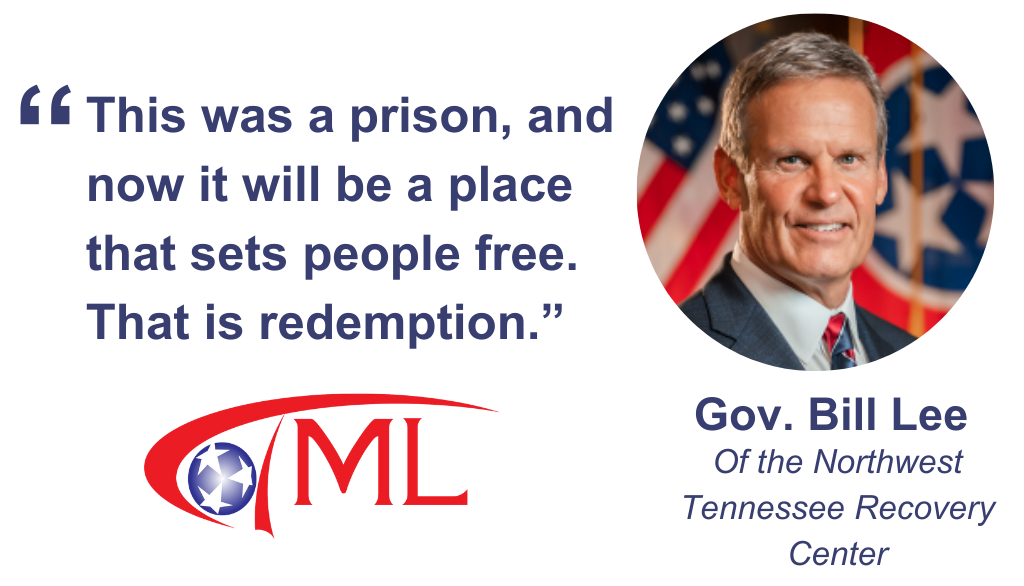
Street said it was a testament to the leadership of Northeast Tennessee municipalities that many of them chose to give every dime of their Baby Doe funds to the recovery center instead of using it on other needs.
“Addiction has become such a drain on our cities, our counties, and our states,” he said. “Everybody in those rooms know somebody or care about someone who – if they are not in addiction – has experienced it. They realized what a problem this is. Our counties and cities had the foresight to say let’s try to stop this cycle if we can, but they held our feet to the fire to come back with a lot of things, like the facility and the grant money we were able to secure. It all started with the cities and counties who said if you can do this, we’re in.”
Erwin Alderman Michael Baker said that Unicoi County will need its own jail in the near future largely due to the opioid issue in the region. He found out about the plan for the recovery center from town of Unicoi Mayor Kathy Bullen and invited those involved with the facility, like the judges and Carter County Mayor Patty Woodby, to make a presentation before the Erwin board.
“Our town was originally going to use this money for non-recurring funds,” Baker said. “I found out about the program and reached out. At their pitch, we committed all $175,000 of our money to this program. It has been pretty remarkable to see where we’ve come from an idea to see this facility opening.”
Woodby said addiction reaches various aspects of government on all levels in the region, from overloading the juvenile court system with cases where parents have lost custody of their children to taxpayers being burdened by recidivism in local jails to the healthcare system being overloaded.
“These people are suffering from addiction, which is a mental illness,” Woody said. “They aren’t necessarily bad people, but they can’t function in society without feeding that habit. It leads them to commit crimes, and they get put in our facilities, which means we have to provide food, healthcare, and everything they need while they are in those facilities. In the end, it becomes a major burden on the taxpayer.”
An agreement was made that the facility, surrounded on three sides by the Appalachian National Forest, would be transferred from TDOC to TDMHSAS ownership and would be rented to local recovery organization Families Free for $1 a year. TDMHSAS is also providing an additional recurring annual grant of $1.3 million for the facility,
Recovery care at the center is being administered by local non-profit Families Free, which has long been working with individuals, families, and recovery courts in Washington, Sullivan, and Carter counties. The facility will host one year to 18-month recovery programs that help residents address both physical and mental causes of addiction as well as provide them with job training through the Elizabethton TCAT and Northeast State Community College.
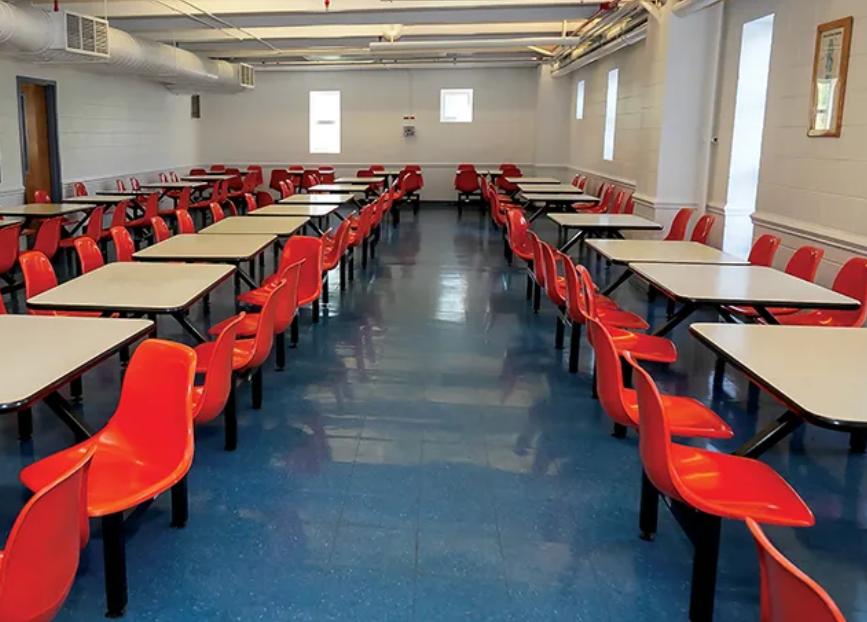
The facility has the capacity to house 85 individuals but initial planning calls for a capacity of 45 while the program begins. At present, there are already four residents of the facility with the hope that the program will grow slowly and become a pilot project across the state and country.
The recovery center is for male-only participants who have been sentenced through the local drug court. Those who are allowed to enter the facility must be vetted by a judge, show a commitment to the program, and can be sent back to jail if they don’t. Families Free offers separate residential programs for women in Johnson City to better fit their needs not funded through other means. Woody said there is also a larger population of men in the region who need services.
At the end of their stay, the hope is clients in recovery will have new skills for a career, help with places to live, and be on their way to serving as contributing members of the community instead of languishing in local prisons. Wrap-around services will be provided to help connect those in recovery with places to live, job opportunities, and ways to continue their recovery journey.
Duncan said Kingsport municipal officials consider giving their money to the facility an “investment” in their community.
“We know that here in Kingsport and Sullivan County that some of our citizens will be in that facility,” he said. “We know this is going to be regional people that have problems with drugs but have the potential to rehabilitate. They can go through this program and come out to be working in society and functioning with their families. Opioids doesn’t just impact one person; it impacts an entire family tree.”
Baker said the facility is a chance for Northeast Tennessee communities to not only save their own future but show others the way forward.
“This was a once-in-a-lifetime opportunity,” Baker said. “It’s not every day that municipalities have money with no strings attach. No one is coming; no one is going to save us. This is our opportunity to save ourselves and generations to come. There was no one saying ‘you have to do this.’ Everyone in the region has seen there is a huge epidemic up here, and what we have done in the past is not working. That’s true not just in our area but in all of Tennessee and the whole U.S. If we are going to save ourselves, we need to lead and make something happen.”
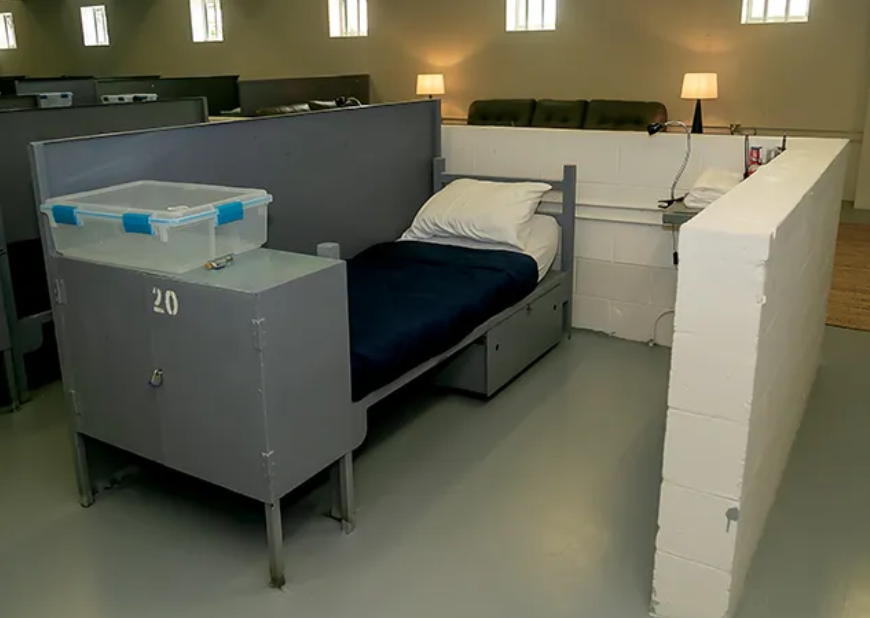
The project has also been touted as a great example of regionalism solving issues that impact various localities.
“It was particularly nice to see judges, community leaders, elected officials, and prosecutors all come together and play different roles to see this come together,” Staubus said. “I was glad I was able to play a role by having a successful outcome in the lawsuit. A lot of cities and counties have a lot of needs, but for them to turn lose that money for this was a tough decision but the right decision. Most of the folks in the area understand the extent of our drug program and knew we needed something like this.”
Woodby said she thinks the facility is the best example of regionalism in Northeast Tennessee.
“You have every facet of government working together from the judicial, the legislative, and the executive branch,” she said. “This project has the support from the top down, which is the governor of Tennessee. Having all those entities involved has made this successful.
Duncan said buy-in from across the region is financing a program that no one community could have done on its own.
“It also showcases that everybody up here realizes the importance of this program,” he said. “We know this will change people’s lives in all these counties and cities up here. Everybody has got a certain amount of money invested in this.”
For Staubus, the opening of the facility is “a dream realized.”
“If we won the lawsuits, I wanted to see a long-term facility that would not only provide rehabilitation but vocational training and address all the needs they have,” he said. “Insurance sometimes limits how long people can stay in treatment, but you can’t treat addiction in 30 days or 60 days. Many of them do not have insurance and will move from incarceration to this facility. Hopefully, the goal is not just sobriety, but turning their lives around and becoming productive members of society. I’m very gratified and excited to see this program up and running.”
Perhaps the program was best summed up by Gov. Bill Lee when he helped cut the ribbon on the facility earlier this year.
“This was a prison, and now it will be a place that sets people free,” Lee said. “That is redemption.”
